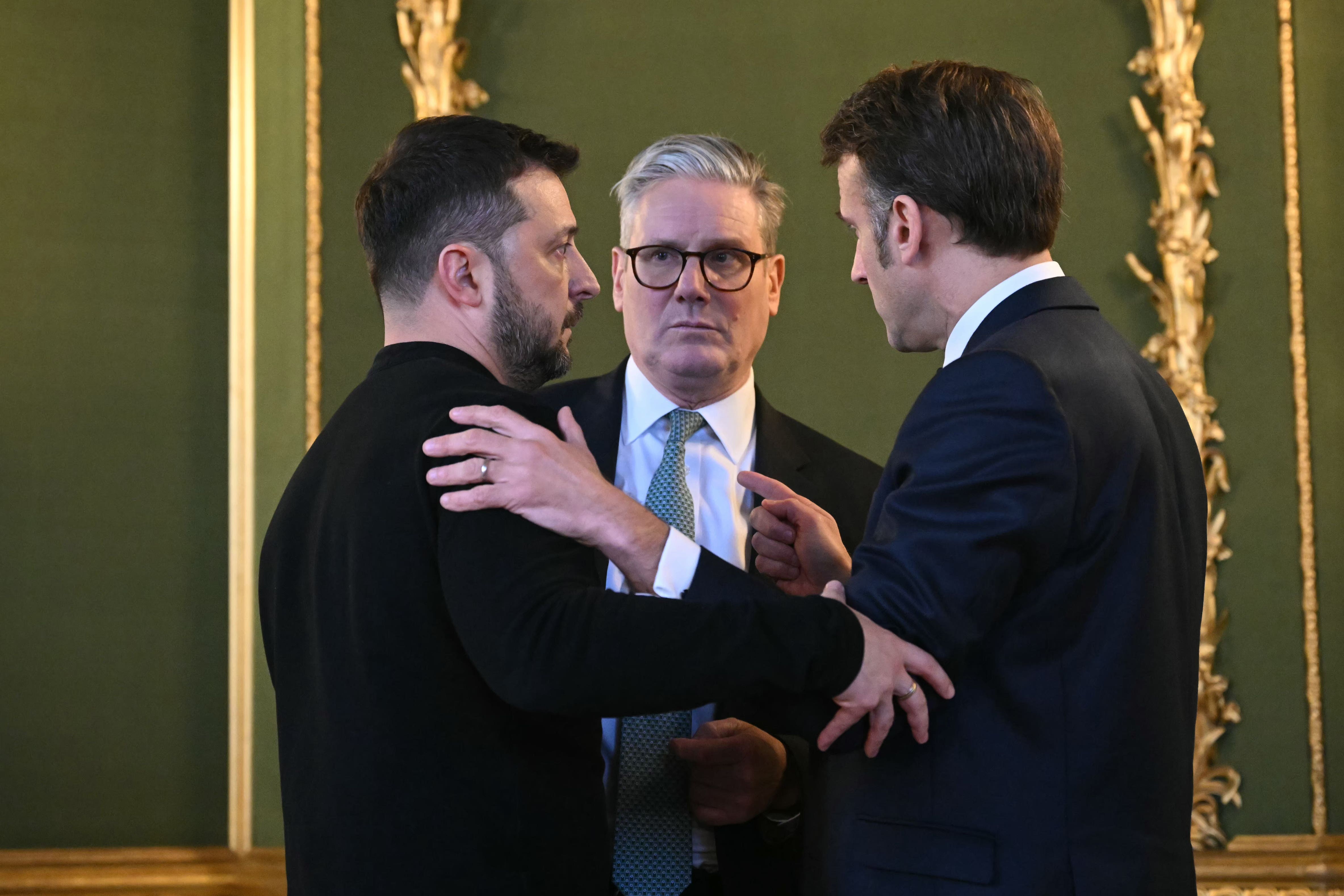We must weaponise Russia’s frozen assets – and wipe the smile off Putin’s face
Starmer and his allies should stop dilly-dallying over using £260bn of frozen Russian assets for Ukraine, writes Jason McCue. There’s no legal impediment – they just need the political will


For years, the West has grappled with the question of confiscating €260 billion of Russian state assets sanctioned within the EU for Ukraine. From a moral standpoint, it appears reasonably straightforward. The challenge lies in reconciling what is clearly the right thing to do with its legal and political ramifications.
A fair summary might be that, legally, although confiscation does not contravene international law, it requires justification through due process. Politically, confiscation challenges a world order that reveres protecting sovereign assets and fears copycat reprisals, unsettling financial markets and deterring investment.
Our leaders have the same goal in mind but are going down rabbit holes to get there. Putin must be laughing at our weakness, him having no qualms in confiscating huge chunks of Ukraine; watching our indecision from the sidelines, with our boldest actions being to hurl threats of retaliation.
It must be frustrating for Zelensky to witness the hesitance of the Starmer government and his allies on this issue. It is crucial to call it for what it is: politics, rather than law. The legal Rubicon was crossed long ago. US legislation has long permitted confiscation of state assets when the US executive simply designates it as a “state sponsor of terrorism”. Canada does it, too. Why aren’t we? This approach is effective and practical and serves as a model worth emulating.
Last summer, a €50 billion EU loan to Ukraine was facilitated through interest and revenues from the sanctioned €260 billion. Even this limited use underpins the spirit of the law. So, what it now boils down to is the self-interested politics of Ukraine’s allies; we are willing to risk tit-for-tat confiscation of interest and revenues on our own sovereign assets abroad, but not of the principal sum.
So far, the approach to bolstering the political argument for confiscation has been to point out its necessity: Ukraine needs it to stay in the game. Without it, more trouble is coming our way.
But that only gets you so far and we need a solution that protects against the underlying political concerns. Introducing a fast-track, private international judicial process into the confiscation process would provide a due process mechanism that could underpin the political will to carry it out.

This could deliver due process in a matter of months – and also provide immediate cash to Zelensky via means that would appeal to the politicians’ taxpayers.
Zelensky’s private international lawfare programme could initiate substantial damages claims – not only against the Russian Federation, but also against the private sector of the Russian war machine; the latter’s assets vulnerable to litigation outside Russia significantly exceed those of their state (€260bn): $50bn sanctioned alongside an estimated $500bn in FDI, loans, and deposits outside Russia.
It is standard practice in such reparations claims to leverage potential recovery to provide interim cash. Starmer and his allies could readily establish a fund whereby allied states holding the sanctioned assets provide commercial non-recourse loans immediately to Ukraine. Best practice modelling allows for a pool of £50bn in reparations claims to attract a non-recourse loan of £35bn that can be utilised for Ukraine’s defence.
This approach not only provides a more Trump-appealing narrative domestically than merely giving aid without any prospects of a return, but such lenders would also possess a secured amount in their own hands to leverage against Russia and have a vested interest in successful claims confiscating assets to ensure the recovery of their principal loan amount. That is the kind of political sense that makes things happen.
These lawfare claims offer significantly more political comfort through their very initiation. More comes from the established legal concept of interim payments, which could provide a solid legal foundation (due process in itself) for the immediate confiscation of a substantial portion of the potential full value of the reparations claims. Injunctions allow for a depoliticised freezing of those assets, which can endure the lifting of sanctions by any allied state that wavers in its support for Ukraine.
This has long been established law within court claims throughout the world. A public international law expert rarely looks beyond the confines of the moribund international justice system and towards the realm of private international lawfare; it is therefore not surprising if those advising Ukraine and her allies have gone down a rabbit hole. Less surprising is the sound of Putin laughing at us again.
Join our commenting forum
Join thought-provoking conversations, follow other Independent readers and see their replies
Comments
Bookmark popover
Removed from bookmarks